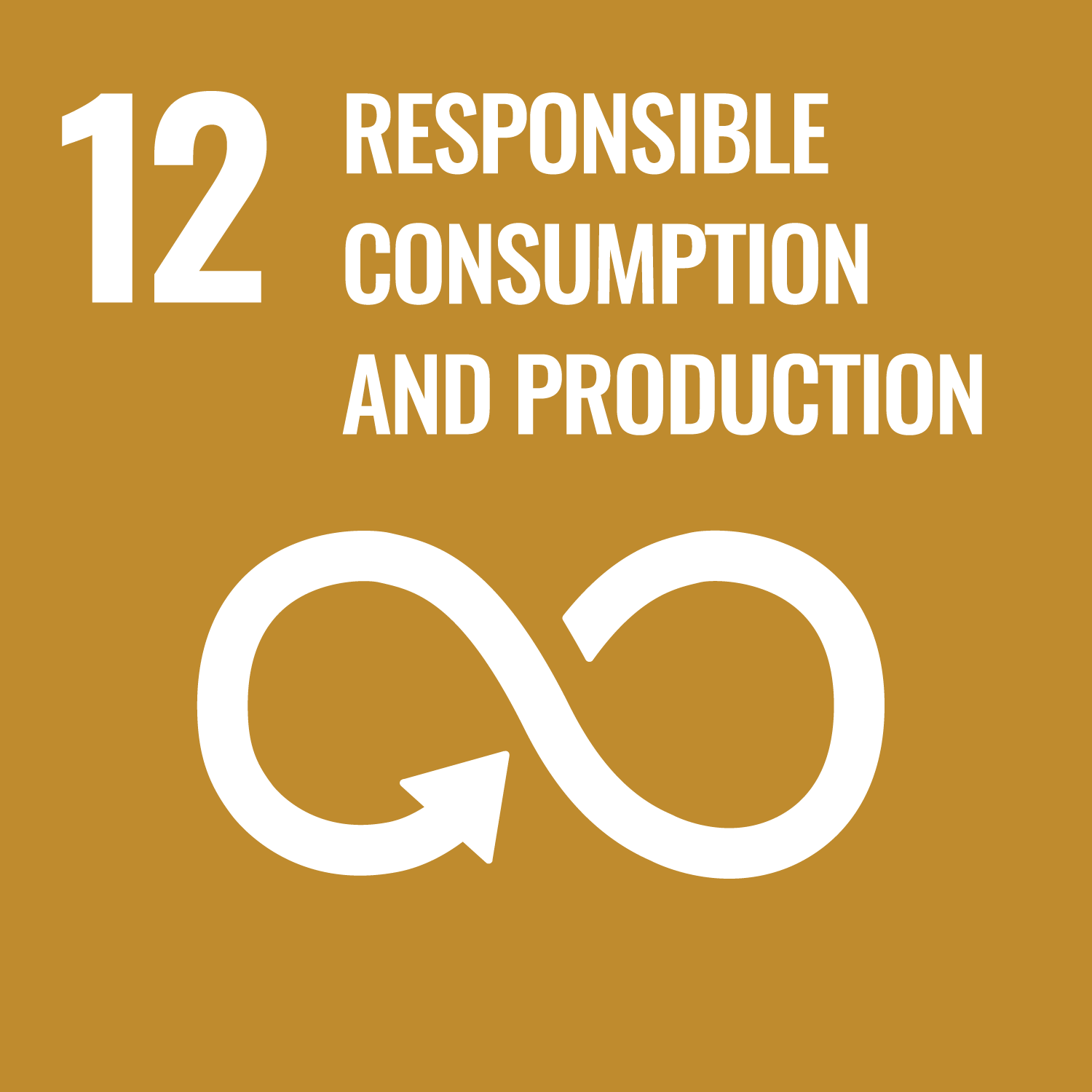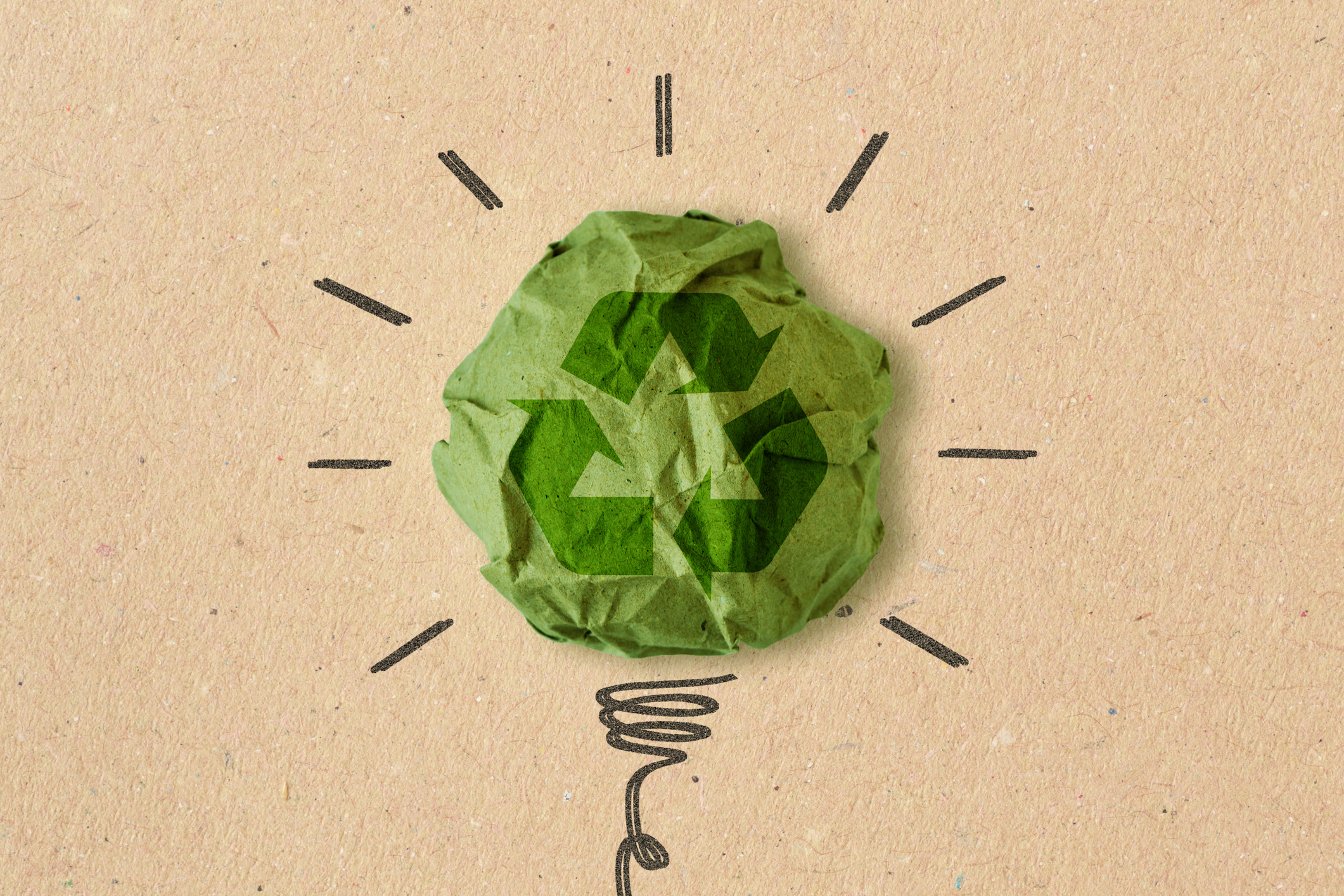
Your browser is not supported by our website. Some features of the site are not available or will not work correctly. See the procedure to update your browser
Our production model—which is based on the exploitation of resources that, once used, end up in a landfill, an incinerator or the natural environment—has a destructive effect on the environment and ecosystems.

To achieve a sustainable balance, the global economy must shift towards a production model that encourages businesses and industries to recycle, reduce waste and be more resource-efficient.
The United Nations Sustainable Development Goal 12, titled "Responsible consumption and production," encourages us to do more, and better, with less. It involves decoupling economic growth from environmental degradation, increasing resource efficiency and promoting sustainable lifestyles.note de bas de page1
How can companies adopt a more sustainable production model?
Producing goods and services requires the use of raw materials, such as wood for a house, steel for a wind turbine and rare earth elements for an electric car battery.
Companies can reduce their need for raw materials and energy by developing new processes and by using more efficient technologies that limit their impact on the environment.
The choice of materials used in the production process can also contribute to achieving a more sustainable production model. For example, this may involve the following options:
Desjardins Sustainable Funds invest in companies that contribute to the United Nations Sustainable Development Goal 12. Here are some examples:

Descartes Systems Group Inc. is a Canadian technology company specializing in logistics software, supply chain management software and digital data storage services for logistics companies. The company's solutions for reducing the environmental impact of its customers include streamlined delivery options to reduce travel and digital logistics processes to cut down on paper and a better matching system to prevent vehicles from running empty. Descartes Systems Group saved over 1 million litres of fuel and 2.84 million sheets of paper in 2021.

Adidas is one of the world's best-known sports companies. It is committed to integrating natural resource protection criteria through innovation in its production processes across its supply chain. In 2015, the company introduced a running shoe made from plastic waste recovered from the ocean. In addition, it has pledged to use only recycled polyester by 2024. Adidas is also working to recover used items to extend product life through secondhand sales and the reuse of materials to reduce waste.

Waste Connections specializes in the collection and treatment of waste and recyclable materials in Canada and the United States. The company develops gas recovery systems to provide renewable energy. Methane recovered from 23 of these systems can be used to generate electricity for households, power local industrial facilities and alternative fuel vehicles, or even qualify for carbon offsets and renewable fuel credits.
The Desjardins Funds are not guaranteed, their value fluctuates frequently, and their past performance is not indicative of their future returns. The indicated rates of return are the historical annual compounded total returns of the date of the present document including changes in securities value and reinvestment of all distributions and do not consider sales, redemption, distribution or other optional charges, or income taxes payable by any securityholder that would have reduced returns. Commissions, trailing commissions, management fees and expenses all may be associated with mutual fund investments. Please read the prospectus before investing. The Desjardins Funds are offered by registered dealers. Desjardins®, all trademarks containing the word Desjardins, as well as related logos are trademarks of the Fédération des caisses Desjardins du Québec, used under licence.